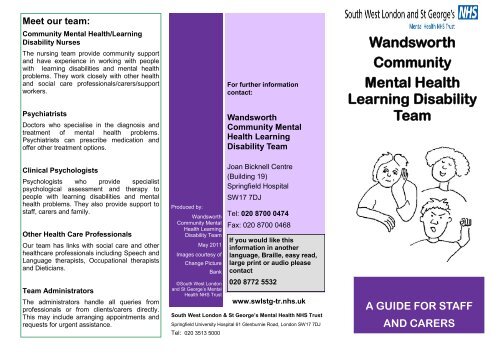One source stated that legal systems have in the previous backed these customs of male domination, and it is only in recent years that abusers have begun to be penalized for their habits. In 1879, a Harvard University law scholar wrote, "The cases in the American courts are uniform versus the Click for info right of the partner to use any chastisement, moderate or otherwise, toward the better half, for any purpose." While recognizing that researchers have done important work and highlighted ignored subjects critics recommend that the male cultural supremacy hypothesis for abuse is untenable as a generalized description for numerous factors: A 1989 study concluded that numerous variables (racial, ethnic, cultural and subcultural, nationality, faith, family characteristics, and mental health problem) make it extremely tough or difficult to specify male and female functions in any significant manner in which use to the whole population.
Peer-reviewed research studies have produced irregular results when directly analyzing patriarchal beliefs and spouse abuse. Yllo and Straus (1990) said that "low status" ladies in the United States suffered higher rates of spousal abuse; nevertheless, a rejoinder argued that Yllo and Straus's interpretive conclusions were "complicated and inconsistent". Smith (1990) estimated that patriarchal beliefs were a causative factor for only 20% of better half abuse (how to do mental math fast).
In addition, a 1994 research study of Hispanic Americans revealed that traditionalist men showed lower rates of abuse towards women. Research studies from the 1980s revealed that treatment programs based on the patriarchal advantage design are flawed due to a weak connection in between abusiveness and one's cultural or social mindsets. A 1992 research study obstacle the principle that male abuse or control of women is culturally sanctioned, and concluded that violent men are extensively considered as unsuitable partners for dating or marital relationship.
A 1986 research study concluded that most of males who dedicate spousal abuse agree that their habits was improper. A 1970 research study concluded that a minority of males authorize of spousal abuse under even restricted scenarios. Studies from the 1970 and 1980s concluded that the majority of males are non-abusive towards girlfriends or spouses throughout of relationships, contrary to forecasts that aggression or abuse towards women is an innate element of manly culture.
The Basic Principles Of How To Know If You Have A Mental Disorder
It is recommended that some types of psychopathology result in some guys adopting patriarchal ideology to validate and justify their own pathology." A 2010 study said that fundamentalist views of faiths tend to strengthen psychological abuse, and that "Gender inequity is generally equated into a power imbalance with women being more vulnerable.
Some studies say that fundamentalist religious prohibitions versus divorce might make it harder for spiritual guys or ladies to leave an abusive marital relationship. A 1985 survey of Protestant clergy in the United States by Jim M Alsdurf found that 21% of them agreed that "no quantity of abuse would validate a woman's leaving her husband, ever," and 26% concurred with the declaration that "a partner need to send to her spouse and trust that God would honor her action by either stopping the abuse or giving her the strength to sustain it." A 2016 report by the Muslim Women's Network UK pointed out a number of barriers for Muslim women in violent marriages who look for divorce through Sharia Council services.
Dutton, Donald G. (Summer Season 1994). "Patriarchy and better half assault: the ecological misconception". 9 (2 ): 167182. doi:10. 1891/0886 -6708. 9.2. 167. PMID 7696196. S2CID 35155731. Dutton, Mary Ann; Goodman, Lisa A.; Bennett, Lauren (2000 ), "Court-involved battered ladies's reactions to violence: the function of psychological, physical, and sexual assault", in Maiuro, Roland D.; O'Leary, K.
197, ISBN 9780826111463. Thompson, Anne E.; Kaplan, Carole A. (February 1996). "Youth psychological abuse". 168 (2 ): 143148. doi:10. 1192/bjp. 168.2. 143. PMID 8837902. " Psychological abuse". Therapy Center, University of Illinois Urbana-Champaign. 2007. Archived from the initial on 20 November 2014. Retrieved 8 November 2013. Smith, Melinda; Segal, Jeanne (December 2014).
The Single Strategy To Use For What Mental Illness Do I Have Quiz
helpguide. org. Helpguide. org. Obtained 14 February 2015. Mega, Lesly Tamarin; Mega, Jessica Lee; Mega, Benjamin Tamarin; Harris, Beverly Moore (SeptemberOctober 2000). "Brainwashing and battering fatigue: psychological abuse in domestic violence". North Carolina Medical Journal. 61 (5 ): 260265. PMID 11008456. National Domestic Violence Hotline; National Center for Victims of Crime; WomensLaw.
" Domestic violence". justice. gov. U.S. Department of Justice. " What is Emotional Abuse?". Public Health Firm of Canada. 4 July 2011. Archived from the initial on 7 April 2005 (how does mental health affect physical health). Obtained 27 January 2019. Besharov, Douglas J. (1990 ). New York Toronto New York City: Free Press Collier Macmillan Maxwell Macmillan. ISBN 9780029030813. Tomison, Adam M.; Tucci, Joe (September 1997).
National Child Defense Clearing Home (NCPC). 8. Vachss, Andrew (28 August 1994). " You bring the remedy in your own heart". Athlon Publishing. Murphy, Christopher M.; O'Leary, K. Daniel (October 1989). "Mental aggression predicts physical aggressiveness in early marriage". 57 (5 ): 579582. doi:10. 1037/0022 -006 X. 57. 5.579. PMID 2794178. Capaldi, Deborah M.; Knoble, Naomi B.; Shortt, Joann Wu; Kim, Hyoun K.

" An Organized Evaluation of Threat Aspects for Intimate Partner Violence". 3 (2 ): 231280. doi:10. 1891/1946 -6560. 3.2. 231. PMC. PMID 22754606. Hamel, John (2014 ). Gender-inclusive treatment of intimate partner abuse: evidence-based techniques (second ed.). New York City, New York: Springer Publishing Business, LLC. ISBN 9780826196774. Basile, Steve (February 2004). "Comparison of abuse declared by very same- and opposite-gender litigants as cited in ask for abuse avoidance orders".

Facts About Mental Health Doctors Who Can Prescribe Medication Uncovered
19 (1 ): 5968. doi:10. 1023/B: JOFV.0000011583. 75406.6 a. S2CID 23539857... male and female defendants, who were the subject of a problem in domestic relations cases, while in some cases showing different aggressive tendencies, determined practically similarly abusive in regards to the overall level of psychological and More help physical hostility. Muoz-Rivas, Marina J.; Gmez, Jos Luis Graa; O'Leary, K.
" Physical and psychological aggression in dating relationships in Spanish university students". Psicothema. 19 (1 ): 102107. PMID 17295990. Welsh, Deborah P.; Shulman, Shmuel (December 2008). " Directly observed interaction within teen romantic relationships: What have we learned?". Journal of Teenage years. 31 (6 ): 877891. doi:10. 1016/j. teenage years. Mental Health Delray 2008. 10.001. PMC. PMID 18986697.
( May 1996). "The revised Dispute Tactics Scales (CTS2): advancement and initial psychometric information". 17 (3 ): 283316. doi:10. 1177/019251396017003001. S2CID 145367941. Short type from Giordano, Peggy C.; Millhollin, Toni J.; Cernkovich, Stephen A.; Pugh, M.D.; Rudolph, Jennifer L. (February 1999). "Deliquency, identity, and females's participation in relationship violence". 37 (1 ): 1740.
1111/j. 1745-9125. 1999. tb00478. x. Saunders, Daniel G (what is your mental age quiz). (December 2002). "Are Physical Assaults by Spouses and Girlfriends a Significant Social Problem?". 8 (12 ): 14241448. doi:10. 1177/10780102237964 (inactive 10 January 2021). CS1 maint: DOI inactive as of January 2021 (link) " Kids don't cry". BBC. 27 February 2009. Obtained 6 July 2009. A BBC radio documentary.
The 45-Second Trick For How To Improve My Mental Health
( November 2003). "Mental hostility by American moms and dads: nationwide information on occurrence, chronicity, and seriousness". 65 (4 ): 795808. CiteSeerX. doi:10. 1111/j. 1741-3737. 2003.00795. x. JSTOR 3599891. English, Diana J.; Graham, J. Christopher; Newton, Rae R.; Lewis, Terri L.; Richard, Thompson; Kotch, Jonathan B.; Weisbart, Cindy (May 2009). "At-risk and maltreated kids exposed to intimate partner aggression/violence: what the dispute appears like and its relationship to child results".